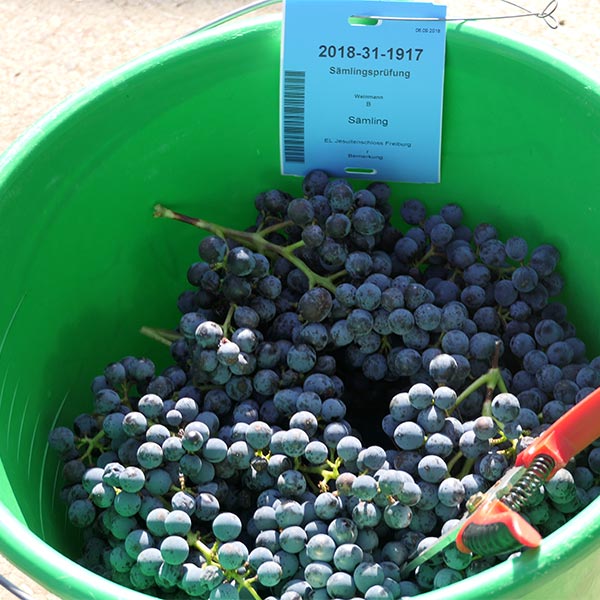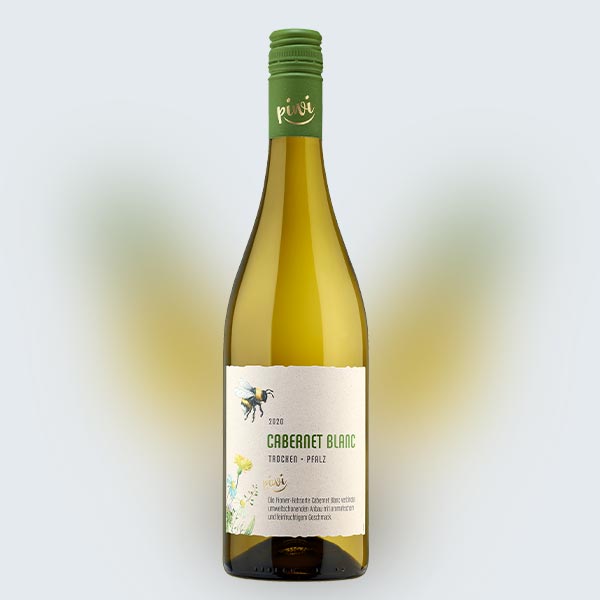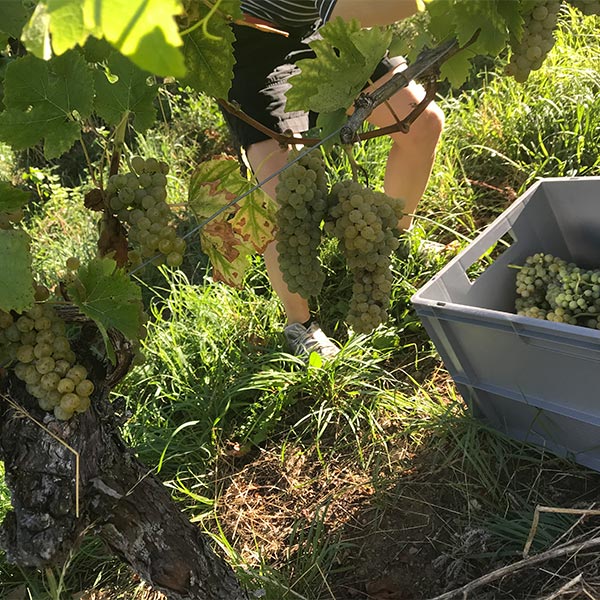Piwi wines are niche wines - and they will remain so in the near future. But we have to come to terms with the idea that climate change and aspects of sustainability make it necessary to take wines made from fungus-resistant varieties seriously in the long term. Soil compaction and pesticide contamination can no longer be accepted as a necessary evil in viticulture in the long run.
According to experts like Prof. Reinhard Töpfer, head of the Julius Kühn Institute (JKI) for Vine Breeding in Siebeldingen since 1995, the reduction in chemical-synthetic pesticides targeted by the EU by 2030 can only be achieved if many more vineyards are planted with fungus-resistant varieties. "The current discussions about climate change and its consequences give the issue of Piwi a tailwind. The 'Green Deal' is a massive political requirement of the EU that must be met. And Piwis are an important building block in the strategy that viticulture must pursue," Töpfer explains the perspective of the new varieties.

Piwis are grape varieties that have been created by flower crossing European grape varieties with American or Asian varieties. Piwi stands for fungus resistant and thus for disease resistance to powdery and downy mildew, sometimes also to botrytis and black rot. Some well-known examples of the new varieties are Regent, Solaris, Johanniter, Bronner, Cabernet Blanc or Souvignier gris.
In the best case, the cultivation of Piwis allows a drastic reduction of plant protection, although even with fungus-resistant grape varieties, the use of copper and sulphur cannot be completely dispensed with in particularly infection-ridden years. The varieties are very resistant, but not one hundred percent resistant.

In Germany, the first Piwi varieties were approved in the 1990s. Today, more than 50 varieties are available to winegrowers, and others are in the process of being approved. "Germany plays a pioneering role in the breeding of Piwis," emphasises Prof. Reinhard Töpfer of the JKI. "For a long time, Italy and France treated new varieties very stepmotherly, whereas in Germany piwis have at least been accepted as a topic since the turn of the millennium. In our country, the prejudice that new varieties always bring off-flavours was also overcome much earlier."
So far, only three to four per cent (about 3,500 hectares) of the German cultivated area is planted with Piwis, about half of it with the red variety Regent. In the course of the red wine boom, Regent was increasingly cultivated 20 years ago, but the enthusiasm is long gone - and the variety's resistance ultimately proved not to be as high as predicted at the beginning. Benedikt Grein, head of the Experimental Winery at the State Viticulture Institute FFreiburg WBI), explains: "Regent belongs to the first generation of Piwis. It is a discontinued model. I don't think winemakers are still planting Regent today. Research has produced more interesting varieties in the meantime."

That climate change is the greatest challenge for viticulture is no longer a matter of debate. Many winegrowers have also come to understand that there will be an increasing demand for wines with a low ecological footprint in the future. In addition, there are economic constraints such as labour shortages and higher costs, as well as the ban on more and more pesticides. Piwi varieties could be an answer to all these problems.
But the list of prejudices and concerns about piwis is long and often understandable. How should one handle the new grape variety? How does it behave in the cellar? Can Piwis keep up with traditional varieties in terms of taste? Will customers accept the new wines? These are questions that need to be answered. Prof.Töpfer wants to take away the fear of the unknown from winegrowers: "It makes no sense to badmouth the traditional grape varieties. There will have to be a slow transition. The new varieties have to find their place, for example in products where the variety name is not so prominent, in sparkling wines or branded wines. Replacing Riesling or Burgundy is not the goal, but there are already a number of varieties that would be more interchangeable."
Career changers are often more courageous when it comes to Piwi. This is shown by the example of Astrid Liebich from Baden. The 60-year-old took over her family's one-hectare vineyard ten years ago. But instead of selling the grapes to the cooperative as before, Liebich relied on Piwis. She tore out most of the Riesling vines, planted Souvignier gris, Cabernet cantor and Cabernet cortis in their place and started pressing her grapes herself. "At a course on organic viticulture in Freiburg in 2010, I heard about Piwis for the first time and was immediately hooked. Today, 50 percent of my hectare is planted with Piwi varieties, the rest are Riesling, Pinot Blanc and Pinot Noir. Even in bad years, I only spray the piwis twice, the others I have to treat eight to ten times. If I were 20 years younger, I would plant my entire area with Piwis," says Astrid Liebich with conviction.

One part of the Vitifit practical research project is devoted to the question of which sensory style of Piwi wines promises the greatest success with wine lovers. Marc Weber and Prof. Ulrich Fischer from the Institute for Viticulture and Oenology at DLR Rheinpfalz and Ole Kohlmann from the German Wine Institute have published an interesting study on this. The conclusion of their analysis and blind tasting with consumers: "In terms of their quality potential, wines made from Piwi grape varieties are on par with standard grape varieties. However, there is still a lack of experience in how best to develop them. Therefore, the question is whether Piwi wines should be good sensory "copies" of the styles of the standard grape varieties - or whether they should show an independent, deviating, differently recognisable profile."
Benedikt Grein (WBI) has gained a lot of experience with Piwi varieties as an oenologist. In countless micro-vinifications in the test cellar, he has tried out mash times, yeasts or the different vinification possibilities. He shares his knowledge with interested winemakers at lectures and training courses. For him, it is clear that "Piwis must not only taste passable, but excellent. Because you can only convince sceptical winemakers with excellent quality, as blind tastings have shown time and again."
So a good communication strategy is needed to sensitise consumers and inform winemakers. To this end, the Piwi Deutschland association was founded last December. A sign that something is at least slowly moving in the country.